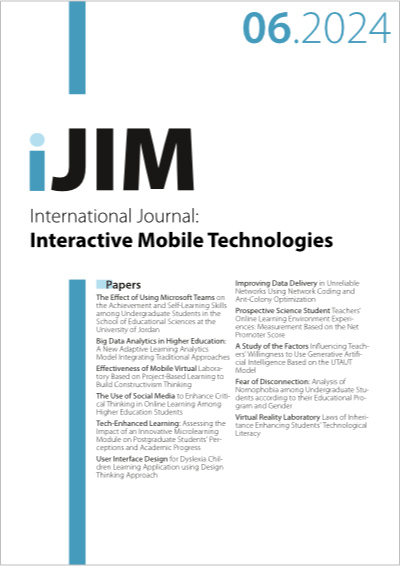Big Data Analytics in Higher Education: A New Adaptive Learning Analytics Model Integrating Traditional Approaches
DOI:
https://doi.org/10.3991/ijim.v18i06.46289Keywords:
higher education; learning analytics model; approachesAbstract
Despite the explosion of interest in adaptive learning and learning analytics (LA) for higher education (HE), there has been relatively little research integrating educational approaches’ indicators to build an adaptive learning analytics model. Adaptive learning analytics (ALA) models have grown in favor of HE due to their claims of enhancing student learning outcomes, providing personalized learning paths, and allowing students to interact with course material at their own pace. With focus on using data to personalize the learning experience and the environment in which the experience of learning occurs, LA centers on enhancing education through meticulous data analysis, while big data (BD) in education addresses the overarching challenges and opportunities arising from extensive and varied datasets. These concepts are interconnected, where LA and ALA specifically apply BD principles within the educational context. In this paper, we explain some BD concepts used in HE, define the essential perceptions related to LA, and analyze educational approaches to define the fundamental implications. Besides, we try to connect some LA model with educational approaches based on the big educational data collected in order to establish an efficient educational model. We include all steps cited before we try to build an ALA model in HE that resolves the limitations of the oldest models, thus improving the learner’s learning process by adding and treating additional indicators.
Downloads
Published
How to Cite
Issue
Section
License
Copyright (c) 2024 MOHAMED BELLAJ, Ahmed BENDAHMANE, Mohammed Lamarti Sefian, Said Boudra

This work is licensed under a Creative Commons Attribution 4.0 International License.


